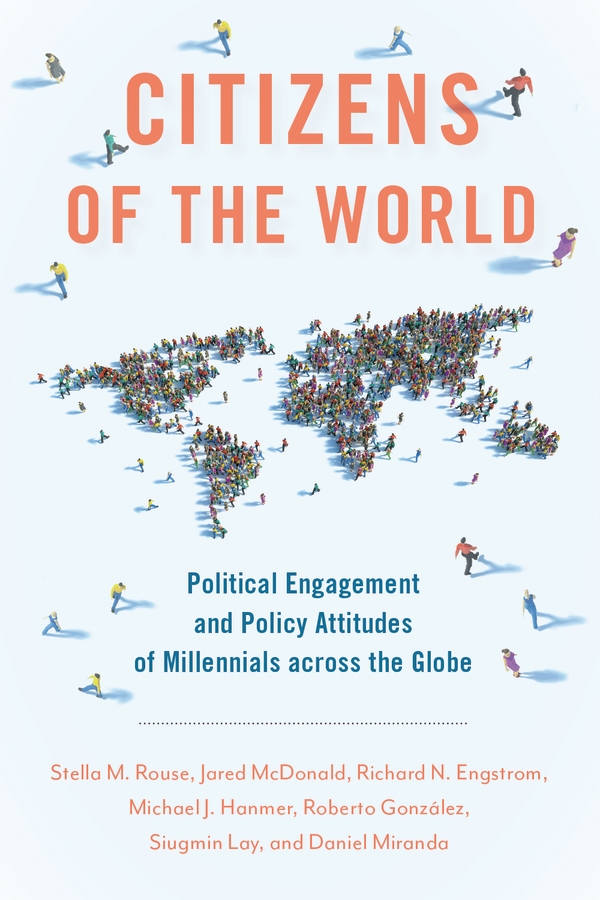Millennials Prefer Protests to Voting, Engage More in Local Politics, GVPT Researchers’ Book Reveals
Millennials aren’t the avocado toast-eating, participation trophy-hogging kids caricatured in the media anymore—they’re on the cusp of wielding major power as political, economic and social leaders around the world.
What does that mean for upcoming elections and campaigns, as society confronts global challenges like human rights abuses, pandemics and climate change?
A new book that includes three University of Maryland researchers and a UMD alum as co-authors provides some insight. “Citizens of the World: Political Engagement and Policy Attitudes of Millennials Across the Globe,” published today by Oxford University Press, examines attitudes and behaviors of millennials, who at 1.8 billion people are now the world’s largest cohort, making up a quarter of the population.
“I’m very interested in how younger generations participate in politics,” said lead author Stella Rouse, professor of government and politics (GVPT). Millennials, born between 1981 and 1996, have certain common ways of viewing the world, thanks to the increasing dominance of the internet during their formative years. “More than older adults, they embrace this global identity, this idea of being a ‘citizen of the world.’”
Rouse and fellow GVPT professors Mike Hanmer and Rich Engstrom conducted the Global Millennial Survey in partnership with Universitas 21 colleagues in eight countries: Australia, Chile, Mexico, New Zealand, South Africa, South Korea, the United Kingdom and the United States. They gathered data from about 600 respondents in each location, half millennials and half older adults, on how they identify themselves, their news consumption habits, their preferred modes of political participation and their interest in public service.
Illustration by Valerie Morgan
Published on Fri, Oct 28, 2022 - 10:14AM



